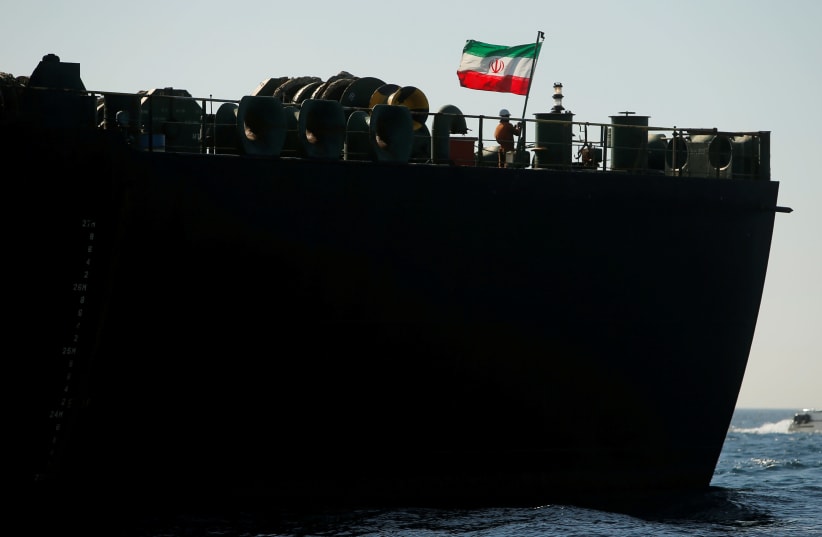US special envoy for Iran Brian Hook offered the captain of the Iranian Adrian Darya 1 tanker several million dollars if he would steer the vessel towards a country that would seize it on America's behalf, according to a Financial Times report on Wednesday.
"With this money you can have any life you wish and be well-off in old age,” wrote Hook wrote in one of a series of emails to the captain of the Iranian tanker, according to AFP. “If you choose not to take this easy path, life will be much harder for you.”
The offer was part of the US state department's "Rewards for Justice" program in which the Secretary of State can offer and pay cash rewards to people with information that "leads to the arrest or conviction of anyone who plans, commits, aids, or attempts international terrorist acts against US persons or property, that prevents such acts from occurring in the first place, that leads to the identification or location of a key terrorist leader, or that disrupts terrorism financing," according to the RFJ website.
"The majority of reward offers are up to $5 million; however, all reward payments are made at the sole discretion of the Secretary of State," according to the State Department.
A State Department spokeswoman confirmed that the Financial Times report was accurate, according to AFP.
"We have conducted extensive outreach to several ship captains as well as shipping companies warning them of the consequences of providing support to a foreign terrorist organization," said the spokeswoman.
"Having failed at piracy, the US resorts to outright blackmail – deliver us Iran’s oil and receive several million dollars or be sanctioned yourself," tweeted Iranian Foreign Minister Mohammad Javad Zarif on Wednesday. "Sounds very similar to the Oval Office invitation I received a few weeks back. It is becoming a pattern."
Having failed at piracy, the US resorts to outright blackmail—deliver us Iran’s oil and receive several million dollars or be sanctioned yourself.Sounds very similar to the Oval Office invitation I received a few weeks back.It is becoming a pattern.#BTeamGangsters pic.twitter.com/B1oQTLghWZ
— Javad Zarif (@JZarif) September 4, 2019
The Iranian Ambassador to the UK Hamid Baedinejad tweeted that Iran has warned the International Maritime Organization that the threats by the US violated maritime treaties and the security of international waters, reported the Iranian Mehr news. Baedinejad added that the US has threatened ports not to provide services to the Adrian Darya in violation of maritime regulations.
The US Department of the Treasury’s Office of Foreign Assets Control (OFAC) took action on Friday against the oil tanker Adrian Darya 1, its Captain Akhilesh Kumar, and anyone aiding it.
The tanker is believed by the US to help Iran’s Islamic Revolutionary Guard Corps-Qods Force (IRGC-QF) to ship and transfer oil, Under Secretary for Terrorism and Financial Intelligence Sigal Mandelker said in a press release sent by the Treasury.
“Anyone providing support to the Adrian Darya 1 risks being sanctioned,” she said.
On Tuesday, the Iranian tanker turned off its transponder in the Mediterranean Sea west of Syria.
The Adrian Darya, formerly known as the Grace 1 was seized by British Royal Marine commandos in darkness at the western mouth of the Mediterranean on July 4 on suspicion of violating European Union sanctions by taking oil to Syria, a close ally of Iran.
Gibraltar Chief Minister Fabian Picardo decided to lift the detention order after written assurances from Tehran that the ship would not discharge its oil in Syria.
Jerusalem Post Staff and Reuters contributed to this report.
